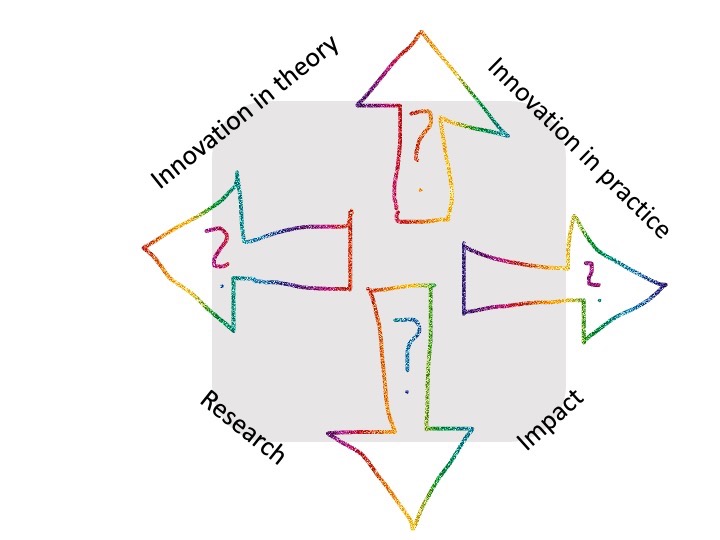One activity in the course are self-studies of scientific articles aiming at the students becoming familiar with the theory in innovation management and being able to relate critically to academic texts.
The students also analyse practice, individually and in groups, to further deepen the knowledge from read articles and to should be able to individually apply research results in a practical context.
Furthermore, the students will formulate and justify in writing their own understanding and analysis results with the aim of using the theory in relation to the practice where the students should convert theory into own texts, adapted to a certain audience. Course aim to give ability to assimilate research in innovation management so that it can be utilised and used to develop practice. The practice is strongly characterised by a sustainability-driven societal adaptation, which is studied in relation to the innovation management research.
MF2087 Innovation Management - Theory and Practice 7.5 credits

The focus of the course is on the scientific literature on how value is created and realized and how that work is organized and managed. The literature relates to innovation and product development, which is often a technical development work, but the literature is also often more general, which is why a broader perspective on innovation and development is given. The course is mainly own studies of scientific articles but also an analytical work that deals with how the theory can be utilized in practice. The students work to a large extent individually but also in small groups. The examination includes active participation in the seminars, oral presentation of projects and writing of essays. The project this year will be a challenge driven task where innovation management literature will be connected to critical sustainability issues of today.
Information per course offering
Information for Autumn 2025 Start 25 Aug 2025 programme students
- Course location
KTH Campus
- Duration
- 25 Aug 2025 - 12 Jan 2026
- Periods
Autumn 2025: P1 (4 hp), P2 (3.5 hp)
- Pace of study
25%
- Application code
50777
- Form of study
Normal Daytime
- Language of instruction
English
- Course memo
- Course memo is not published
- Number of places
Min: 5
- Target group
- No information inserted
- Planned modular schedule
- [object Object]
- Schedule
Contact
Course syllabus as PDF
Please note: all information from the Course syllabus is available on this page in an accessible format.
Course syllabus MF2087 (Autumn 2024–)Content and learning outcomes
Course contents
Intended learning outcomes
After passing the course, the student should be able to:
- analyse and critically evaluate literature in the field of innovation management,
- independently choose literature that is relevant for innovation work in the industry and for a sustainability-driven transformation of society,
- orientate oneself in the literature field,
- evaluate the research design in a scientific project with regard to the chosen research method and theoretical foundation,
- use scientific literature to analyse problems in practice,
- adapt scientific literature to a practice oriented audience and describe it in an appropriate way,
- independently write a text that is based on the research in innovation management,
- hold a dialogue about scientific literature in groups, in order to be able to assimilate research in the area of innovation management, and with that be able to develop and lead a change of innovation work in practice.
Literature and preparations
Specific prerequisites
Bachelor of Science, subject area mechanical engineering or equivalent.
Furthermore the courses MF2084 Managing research and development, MF2046 Product innovation, MF2085 Innovation and product development processes, or courses with equivalent contents.
Literature
Examination and completion
Grading scale
Examination
- SEMA - Seminars, 1.5 credits, grading scale: P, F
- LITA - Literature, 3.0 credits, grading scale: A, B, C, D, E, FX, F
- PROA - Project, 3.0 credits, grading scale: A, B, C, D, E, FX, F
Based on recommendation from KTH’s coordinator for disabilities, the examiner will decide how to adapt an examination for students with documented disability.
The examiner may apply another examination format when re-examining individual students.
If the course is discontinued, students may request to be examined during the following two academic years.
Examiner
Ethical approach
- All members of a group are responsible for the group's work.
- In any assessment, every student shall honestly disclose any help received and sources used.
- In an oral assessment, every student shall be able to present and answer questions about the entire assignment and solution.